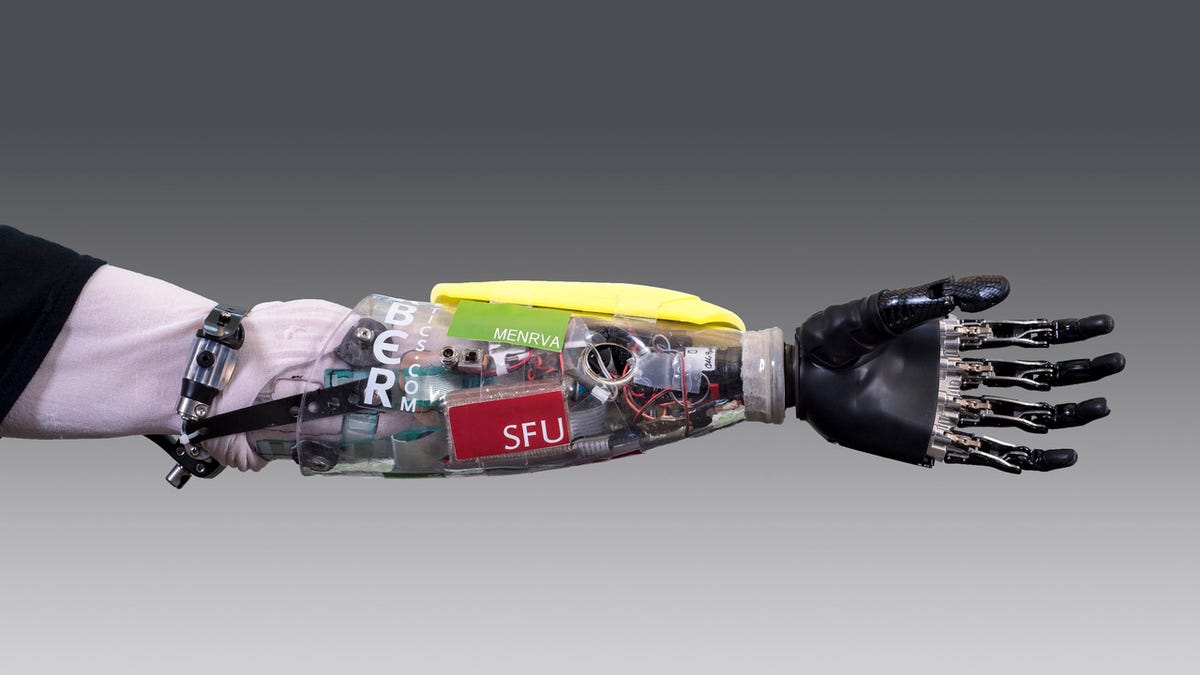Canadian university's bionic hand lets people 'feel' their fingers
Researches at the Simon Fraser University in Canada have come up with a control system for bionic hands that lets a person sense the fingers of the prosthetic limb.

Using your mind to control bionic arms is slowly becoming a thing, as this new development from Canada's Simon Fraser University shows. Researchers at the School of Engineering have developed a new system called M.A.S.S. Impact (Muscle Activity Sensor Strip) which uses an armband filled with pressure sensors embedded in a socket that track movements in a user's remaining muscles which then are mapped by algorithms to decode his intentions.
The system is also capable of using incoming data to make predictions in real time and improve future performance. The hand is currently used by paralympic skier Danny Letain, who says the system allows him to "feel his left index finger and little finger for the first time" since his accident.
Letain will be participating in an upcoming Cybathlon event in Zurich in October. The "cyborg Olympics" allows people with disabilities using robotics to compete in events such as a bread slicing and jar opening obstacle course. While it doesn't sound as vigorous as say, a track and field meet, Cybathlon organizers hope that the event will help spur innovation and allow people with disabilities to regain independence.

